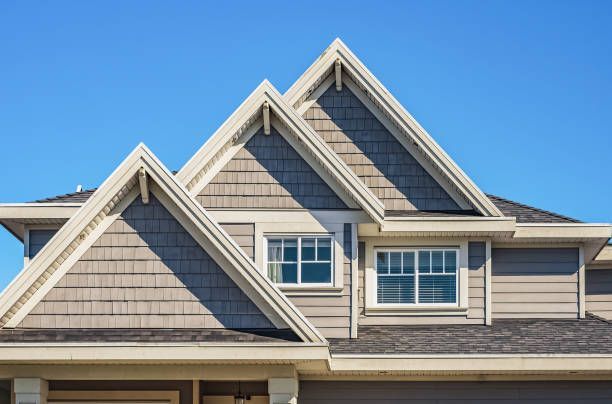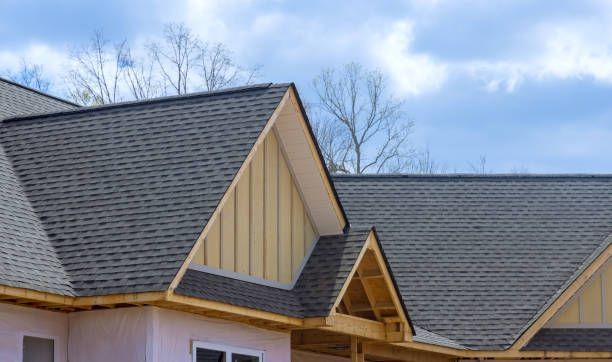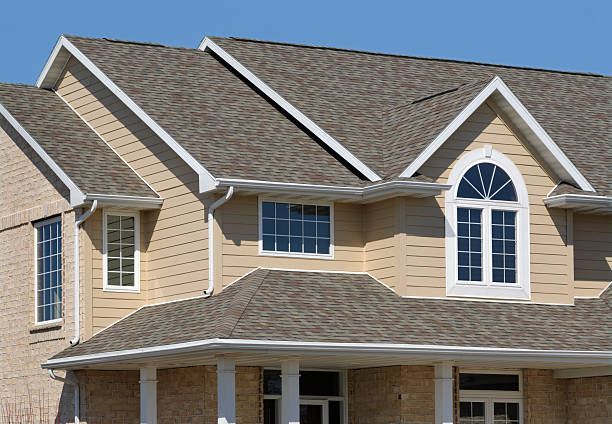The Essentials of Siding Construction: What It Means for Your Home's Durability
The Essentials of Siding Construction: What It Means for Your Home's Durability

Key Takeaways
- Siding construction is crucial for protecting your home from weather, pests, and wear over time.
- High-quality siding materials can significantly increase your home’s durability and lifespan.
- Different siding options have varied costs, benefits, and installation methods.
- Professional siding installation ensures long-lasting performance and minimizes the risk of costly repairs down the line.
- Relying on professionals for siding construction is critical for maintaining the structural integrity and aesthetic appeal of your home.
Your home’s siding is more than just an aesthetic feature. It’s a key component that safeguards your home from external elements, contributes to energy efficiency, and plays a critical role in overall durability. When thinking about long-term home maintenance, what is siding construction becomes one of the most important questions to consider. In this blog, we’ll explore what siding construction means for your home, why it’s essential for durability, and why choosing professional installation is a smart move for homeowners.
What Is Siding Construction?
What is siding construction
exactly? It refers to the process of installing protective material on the exterior walls of a home or building. This material acts as a barrier between your home and the outside environment, shielding it from harsh weather conditions, such as rain, wind, snow, and sun exposure. Common siding materials include vinyl, wood, fiber cement, and metal—each offering different advantages based on budget, climate, and personal preference.
Siding construction is not just about slapping on panels or planks; it involves a precise and careful approach to ensure everything is properly sealed, aligned, and installed with appropriate insulation. When executed professionally, what is siding construction becomes clear—it’s a key factor in enhancing the durability of your home, making it less vulnerable to water damage, pests, and premature wear.
Durability and Weather Resistance
The durability of your home is closely tied to the quality of its siding. In regions that experience extreme weather—whether that’s freezing winters or blistering summers—siding acts as your home’s first line of defense. Materials like fiber cement and vinyl are particularly well-suited for withstanding temperature fluctuations, while wood siding offers a natural aesthetic but may require more maintenance to resist moisture.
For example, studies show that properly installed vinyl siding can last up to 40 years or more with minimal upkeep, making it a cost-effective solution for long-term durability. However, no matter which material you choose, the quality of the installation is key. Poor installation can lead to cracks, gaps, and improper sealing, leaving your home vulnerable to water infiltration and structural damage.
The Broader Implications of Siding Construction
What is siding construction and how does it impact the bigger picture? Your choice in siding construction not only affects the strength and appearance of your home but also its resale value and energy efficiency. Homebuyers are more likely to invest in a home that has high-quality siding installed by professionals, as it reassures them that the house is well-protected and will require less maintenance in the future.
Additionally, many siding materials offer insulation benefits that contribute to lower heating and cooling costs. For instance, insulated vinyl siding helps regulate indoor temperatures by reducing the amount of heat lost through the walls during winter and blocking excess heat in the summer.
On the flip side, opting for DIY solutions can lead to improper insulation, gaps in the siding, and an overall reduction in energy efficiency. This means higher energy bills, discomfort during extreme weather, and potential structural issues over time.
Why Professional Siding Installation Is Crucial
A common temptation for homeowners is to try to cut costs by attempting DIY siding installation. While it may seem like a straightforward process, the reality is that what is siding construction truly demands specialized skills and tools to be done correctly.
The risks of DIY siding construction include improper sealing, uneven installation, and the potential for gaps that allow moisture and pests to penetrate the exterior walls. These issues can result in significant structural damage over time, including mold growth, rot, and even foundation problems. By hiring professionals like Delaware Roofing, you’re not just getting a siding installation; you’re investing in the long-term durability and protection of your home.
At Delaware Roofing, we ensure your siding is installed to the highest standards, using premium materials and expert techniques to guarantee long-lasting performance. Our experience means you won’t have to worry about costly repairs or replacements in the future.
Counter Arguments and Perspectives
Some might argue that DIY siding installation saves money upfront. While it’s true that skipping professional labor may lower immediate costs, the long-term risks far outweigh the benefits. The reality is that a poorly installed siding can lead to expensive repairs, decrease your home’s energy efficiency, and even reduce its resale value. Additionally, correcting a DIY siding job often ends up costing more than hiring a professional in the first place.
There’s also the perspective that some homeowners enjoy taking on these types of projects themselves. While DIY projects can be satisfying, what is siding construction but a job best left to professionals? The expertise and precision required for proper siding installation mean it’s not just about placing the material; it’s about ensuring that everything is sealed correctly, that insulation is working properly, and that the siding will withstand the elements for years to come.
Types of Siding Materials: Pros and Cons
Vinyl Siding
- Pros: Affordable, low maintenance, available in many colors and styles.
- Cons: Can crack in extremely cold temperatures, less eco-friendly than other options.
Wood Siding
- Pros: Natural appearance, eco-friendly, highly customizable.
- Cons: Requires regular maintenance, prone to pests and moisture damage.
Fiber Cement Siding
- Pros: Extremely durable, resistant to fire and pests, long lifespan.
- Cons: More expensive, heavier, requires professional installation.
Metal Siding
- Pros: Fire-resistant, long-lasting, minimal maintenance.
- Cons: Can dent or rust, more expensive than vinyl.
For professional, long-lasting siding installation that boosts your home’s durability and appearance,
Delaware Roofing is here to help. With years of experience and a commitment to quality, we ensure your siding is installed to perfection. Call us today at 302-377-1193 or visit us at 109 Chartwell Court, Bear, DE 19701, and let’s discuss how we can make your home stronger, more efficient, and more beautiful.
Conclusion
Siding construction is an integral part of maintaining your home’s durability and aesthetic appeal. From protecting your home against the elements to boosting energy efficiency, the right siding—and more importantly, the right installation—can make all the difference. While DIY projects can be rewarding, what is siding construction if not a process that requires professional expertise? Cutting corners or trying to save costs on installation can lead to long-term issues. By relying on a professional service like Delaware Roofing, you ensure that your home is not only protected but also enhanced in terms of value and longevity. Are you ready to give your home the protection it deserves?
FAQs
Q: What is siding construction?
A:
What is siding construction? It’s the process of installing protective material on your home’s exterior to safeguard it from weather, pests, and other elements. It’s crucial for the home’s durability.
Q: How long does siding last?
A: Depending on the material and quality of installation, siding can last anywhere from 20 to 40 years or more. Vinyl and fiber cement siding tend to have the longest lifespans.
Q: Can I install siding myself?
A: While it’s possible to install siding as a DIY project, it’s not recommended due to the precision and expertise required. Professional installation ensures your siding will protect your home effectively for years to come.
Q: Which type of siding is best for weather resistance?
A: Fiber cement and metal siding offer the best resistance to extreme weather, including fire, wind, and moisture.
Q: Why should I hire professionals for siding installation?
A: Hiring professionals guarantees proper installation, insulation, and sealing, reducing the likelihood of future problems like water damage, mold, and costly repairs.



